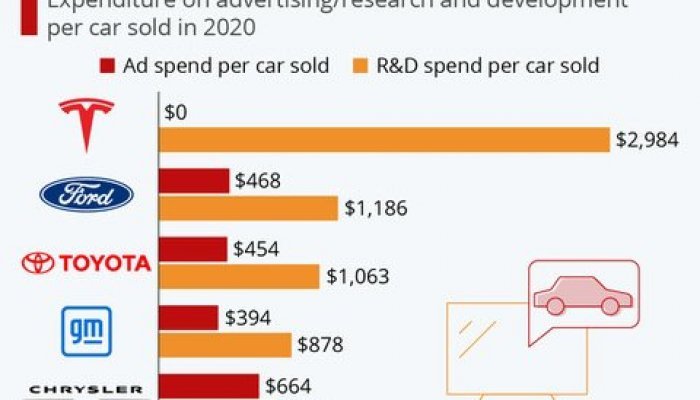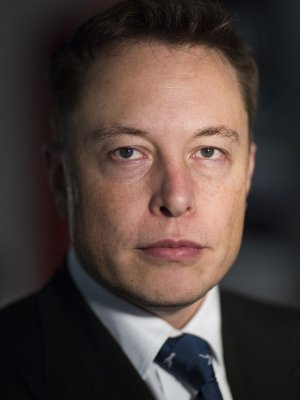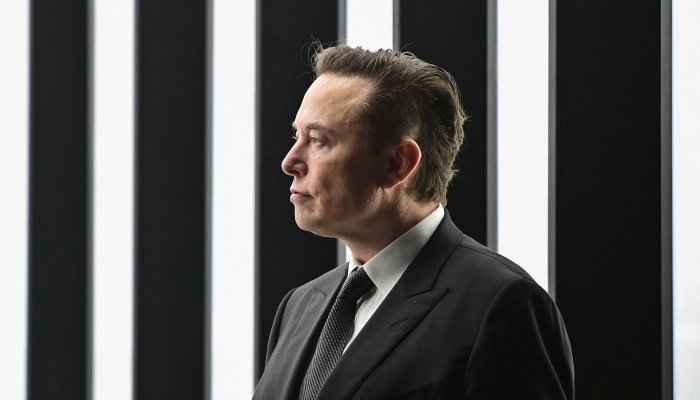In the well-thumbed MBA textbook, The Global Business Environment, author Janet Morrison, a former senior lecturer at Sunderland Business School in the UK, makes the following observation about innovators: “The successful innovator is not simply a person with a flair for coming up with a great idea. The innovator has a mixture of qualities, including knowledge and awareness of commercial opportunities – and perseverance.”
What hasn’t yet made it into mainstream business school publications is the growing realisation that another ingredient is worthy of consideration: neurodiversity.
Musk’s creative muscle
Perhaps the most potent example of the power of neurodiversity to unlock creative genius is South Africa-born Elon Musk, a serial entrepreneur who has already imprinted his unique brand of innovation on sectors as diverse as online payments, electric car manufacturing and space travel.
Musk has been called the 21st century’s Thomas Edison by the likes of CNBC – a reference to another prolific inventor who is believed to have been on the autism spectrum. As neurodiversity research has gained widespread acceptability, the characteristics of other famous innovators have been studied, adding to a growing list of possibly neurodiverse individuals responsible for some of history’s best scientific advances. Albert Einstein. Marie Curie. Sir Isaac Newton. Nikola Tesla. Charles Darwin. Bill Gates. Steve Jobs.
In a 2015 article in The Washington Post, the paper’s former editor of innovations, Matt McFarland, wrote, “While full-blown Asperger’s Syndrome or autism hold back careers, a smaller dose of associated traits appears critical to hatching innovations that change the world.”
McFarland drew heavily on the opinions of Peter Thiel, the billionaire investor, author and venture capitalist, who has been vocal about successful technology companies being founded by innovators who think outside the lines determined by society. In a 2015 discussion at George Mason University, Thiel said, “Many of the more successful entrepreneurs [in Silicon Valley] seem to be suffering from a mild form of Asperger’s, where it’s like you’re missing the imitation, socialisation gene,” he said, adding, “It happens to be a plus for innovation and creating great companies, but I think we always should turn this around as an incredible critique of our society. We need to ask, what is it about our society where those of us who do not suffer from Asperger’s are at some massive disadvantage because we will be talked out of our interesting, original, creative ideas before they are even fully formed?”
Conformity embeds comfort in the safe and conventional. The way to combat that, said Thiel, is to be “somewhat oblivious” to social pressures, which puts the current education system under scrutiny.
Moving beyond the assembly line
Despite holding bachelor’s degrees in science, physics, and economics, Musk has criticised business schools for stymieing innovation. These claims have been widely decried by executives and deans in the US. Musk has also lashed out at the current approach to education which regards people as “objects on an assembly line”. His vision to transform education is something as “close to a video game as possible”, saying that if you can make it interactive and engaging, you can make education far more compelling and far easier. “You really want to disconnect the whole grade level thing from the subjects. Allow people to progress at the fastest pace they can, or are interested in, in each subject.”
Creative engineer, designer and dyslexia advocate, Shawn Brown, also believes we need to transform how we teach children and, indeed, adults. Instead of relying on methods that require the regurgitation of long lists of information, facts and statistics, Brown speaks up for supporting neurodiversity learning.
“Neurodiverse traits can be really useful when it comes to solving problems and coming up with new ideas,” Brown said during a 2017 Ted Talk. “Some of the most inventive individuals I encounter have dyslexia or some specific learning difference. And more often than not, these individuals have suffered with traditional education in some way.”
Brown's message is that new educational models designed to support and encourage creative thinking would boost innovative output. This view has increasingly been taken up by the likes of the Organisation for Economic Co-operation and Development, which has produced insights into the limits of standardised testing and how personalised learning, class size, and professional learning networks can create a more neurodiverse educational experience.
Will this unlock the potential of generations of innovators?
A Cass Business School study by Julie Logan may offer some indication, noting that some 35% of entrepreneurs in the US and 19% in the UK self-identified as dyslexic, with many of these individuals demonstrating higher levels of risk-taking, which translated to starting and owning more ventures than non-dyslexic entrepreneurs. Notably, one reason for the higher American figure was that “the identification, intervention and support for those with dyslexia in the UK started later than in the US and is still failing students”. This reflection supports how a shift in education has the potential to unlock the DNA of would-be innovators and entrepreneurs like Musk.
As the Tesla founder noted recently at an Invest Hong Kong event, “Innovation comes from questioning the way things have been done before. And if in the education system you’re taught not to do that, it will inhibit entrepreneurship.”
What is neurodiversity?
In 1998, Australian sociologist, Judy Singer, used the word ‘neurodiversity’ for the first time in her ground-breaking honours thesis. With that publication, Singer did more than coin a buzzword; she began a movement towards accepting how human minds don’t always operate in the same way.
Her work – most recently outlined in her 2017 book, NeuroDiversity: The Birth of an Idea – postulated that many people live their lives on the so-called ‘spectrum’, battling to fit into the confines of social acceptability and the norms of human interaction.
Today, the term ‘neurodiversity’ is applied to those on the autism spectrum – a group of neurodevelopmental disorders that impact how people communicate, learn, behave and socially interact – as well as those with conditions such as dyslexia, attention-deficit/hyperactivity disorder (ADHD) and obsessive-compulsive disorder (OCD).
In 2021, Tesla and SpaceX founder, Elon Musk, disclosed that he had Asperger’s Syndrome, a mild form of autism associated with reduced social skills and a preference for routine and systems, and often laser focus and creative thinking. “I’m pretty good at running human in emulation mode,” Musk joked during his big reveal on Saturday Night Live.
Unpicking Elon Musk’s innovative traits
Elon Musk has challenged Russian President Vladimir Putin to a duel over Ukraine. He’s prophesied that artificial intelligence could one day rule humankind. He’s tweeted himself on the wrong side of the US Securities and Exchange Commission over musings about taking Tesla private and decried public transport as ‘painful’. His reputation for bluntness and, at times, inappropriate commentary is one of the reasons Musk topped the Top 50 CEOs on Twitter’s list during the fourth quarter of 2021, according to the GlobalData analytics platform.
However, for students of entrepreneurship, there’s another reason to follow Musk on social media: the near-daily insights into what makes a true innovator tick.
As a result, many Twitter users have come to their own conclusions about what makes Musk one of the most successful innovators of our time. Paul Graham (@paulg), a venture capitalist and entrepreneur best known for his Lisp programming language, recently tweeted, “Someone who knows Elon Musk well explained why he’s so successful. It’s simply that he’s an engineering genius. I imagined it was because he was a good manager. Cars and rockets seemed so different that I couldn’t imagine someone being an expert in both. But, apparently, he is.”
Other users have extolled his ability to create value by building vertical integration into all his businesses, his uncanny knack for creating products that appeal to the ‘techies’ and the average consumer, his energy and rationality, and his impressive ability to act and execute ideas.
For blogger Tim Urban, who has written extensively on the entrepreneur and his companies, Musk’s success track record boils down to five ingredients:
- He’s smart and adept at spotting opportunities. Musk saw the potential in electronic payments in the late 1990s, the upshot of which was PayPal. He recognised the potential in commercialising and disrupting interplanetary space travel, both for tourism and the potential colonisation of other planets, and founded SpaceX in 2002. He then turned his attention back to Earth and its problems, focusing on the electric vehicle and the need to inject fun and quality into this emerging space. He established Tesla Motors in 2003. OpenAI, a non-profit artificial intelligence research firm, joined Musk’s stable in 2015. This was followed by Neuralink, which aims to enhance human abilities through technology, and, in 2016, tunnelling company The Boring Company followed. As CB Insights noted in a 2021 report, “His main projects take on almost every major industry and global problem conceivable and imagine a disruptive fundamental rewiring of that space or sector.”
- He’s truly trying to do big things for the right reasons. As part of SpaceX, Musk began to establish a network of 12,000 satellites in Earth’s orbit, an ongoing project called Starlink. In February 2022, in response to a call for support from Ukraine, Musk tweeted that the Starlink service had been activated in the country and more terminals would come. The swift move kept Ukrainians connected, informed and able to guide drones to strike Russian military positions.
- He works hard. Musk’s work ethic is legendary. In his book All In: How Obsessive Leaders Achieve the Extraordinary, Robert Bruce Shaw wrote, “When not in the office or on the plant floor, Musk is almost always accessible to his people. He tells them they should not hesitate to reach out to him when necessary, saying, ‘I’m available 24/7 to help solve issues. Call me at 3:00 am on a Sunday morning. I don’t care’.”
- He’s courageous enough to act. In addition to mobilising Starlink, Musk’s Tesla also offered users of EVs (of all makes) free charging in key Ukrainian cities and parts of neighbouring Poland, Hungary and Slovakia to enable those fleeing the Russian invasion to escape by car. Tesla also offered free EV charging in affected areas during US hurricanes Irma and Florence in 2017 and 2018 and when California was engulfed in wildfires in 2018.
- He does things his way, irrespective of social norms. Conventional automotive makers spend considerable amounts advertising their marques. Not Tesla. Musk favours word of mouth as a marketing medium and rather ploughs funding into research and development.








